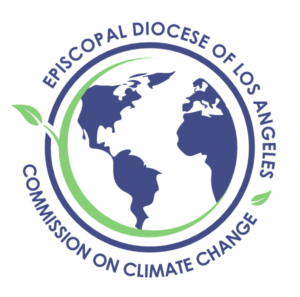
Political Policy and Environmental Advocacy
It was Sister Joan Chittister who said, “We carry the whole world in our hearts, the oppression of all peoples, the suffering of our friends, the burdens of our enemies, the raping of the earth, the hunger of the starving, the joyous expectation every laughing child has a right to. Then, the zeal for justice consumes us. Then, action and prayer are one.“
As we respond to the environmental crises of our time and the consequences of climate change, this is our work: establishing the unity of prayer and action as a sacred calling of people of faith.
Urgent Action & Updates
| Support the creation of a California Climate Superfund
- Climate-related disasters have wrought billions of dollars in damages to the California landscape and built infrastructure. A Climate Superfund requires corporations whose practices contribute to climate crisis pay for damages from such disasters.
| Now is the Time for Urgency and Hope
-
A Commision for Climate Change webinar with climate scientist, Dr. Katharine Hayhoe. Watch the recording.
| Episcopal Church General Convention
The Commission on Climate Change has compiled the following resources to guide our Episcopal community in advocating for policies, protections, and potential solutions that will help our region address pollution, waste, energy transition and lead the way for environmental justice:
Getting Started
- Policy for Action | The Episcopal Church
- Episcopal Public Policy Network Creation Care Overview | The Episcopal Church
- LA City Environmental Programs
- LA’s Green New Deal
- LA County Sustainability Plan | Our County
- Southern California Association of Governments (SCAG) Sustainability Program
- Transformative Climate Communities Program (TCC)
- Policy Positions | Interfaith Power and Light
Articles
Organizations
- California Energy Commission (CEC) – “Leading the state to a 100% clean energy future for all.”
- California Strategic Growth Council (SGC) “works collaboratively with public agencies, communities, and stakeholders to achieve sustainability, equity, economic prosperity, and quality of life for all. SGC also administers a suite of grant programs funded through California Climate Investments – a statewide initiative that puts billions of Cap-and-Trade dollars to work reducing greenhouse gas emissions while providing a variety of other benefits – particularly in disadvantaged communities.”
- California Sustainable Communities & Climate Protection Program (California Air Resources Board) – “The Sustainable Communities and Climate Protection Act (SB 375) supports the State’s climate goals by helping reduce greenhouse gas emissions through coordinated transportation, housing, and land use planning. “
- Energy Upgrade California “is a statewide initiative committed to helping Californians be more energy efficient, utilize more sustainable natural resources, reduce demand on the energy grid and make informed choices about their energy use at home and at work—all of which goes a long way for California.
- LA Neighborhood Council Sustainability Alliance (NCSA) advances sustainability and resilience across Los Angeles through advocacy, sharing of best practices, and community action. We hold regular public forums and events, and collaborate with neighborhood councils, public agencies, and environmental and other community organizations to support effective engagement on LA’s Green New Deal, climate action, and other timely sustainability issues.
- South Coast Air Quality Management District (AQMD) Environmental Justice Program aims “to ensure that everyone has the right to equal protection from air pollution and fair access to the decision-making process that works to improve the quality of air within their communities.”
- Southern California Association of Governments (SCAG) Sustainability Program “works actively with Southern California communities and stakeholders to create a dynamic regional growth vision based on the principles of mobility, livability, prosperity and sustainability. The program’s work focuses on implementing the region’s Sustainable Communities Strategy, the state-mandated plan for reducing greenhouse gas emissions from cars and light trucks through integrated transportation, land use, housing and environmental planning.”
- Transformative Climate Communities Program (TCC) “empowers the communities most impacted by pollution to choose their own goals, strategies, and projects to reduce greenhouse gas emissions and local air pollution.
